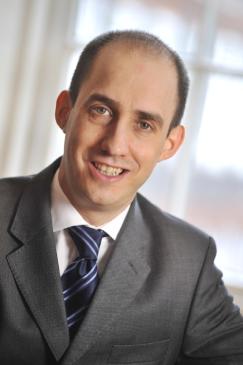
Serle Court's Professor Jonathan Harris QC on the art of juggling a multifaceted career
What was your route into the profession?
Quite a complex one! I spent almost 15 years as a full-time academic. I started out in the 1990s as a lecturer at the University of Birmingham—a place that was filled with great characters and a wonderful working environment. I taught trusts and private international law. I moved onto Nottingham University, before returning to Birmingham as a professor. They kindly let me out to do a pupillage. At the time, I did not anticipate practising at the Bar full-time but I got the bug and, after a few years practicing as a door tenant, joined Serle Court on a full-time basis in 2009.
What has been your biggest career challenge so far?
Juggling the various elements of my professional life. As well as my Bar practice, I spend a good deal of time each year working on Dicey, Morris & Collins on the Conflict of Laws (of which I became joint general editor with Lord Collins in 2015). I am honoured, if somewhat daunted, to have responsibility (along with a first-class team of editors) for taking forward this great work.
I also retain a part-time chair at King’s College, London. I sit on governmental advisory committees, draft legislation for overseas jurisdictions, organise conferences and edit journals and book series. Inevitably, a lot of overseas travel is involved. Furthermore, in the last two years, a great deal of my time has been spent advising on the implications of Brexit for cross-border drafting and dispute resolution.
I suppose I should give some of these things up—but I enjoy seeing the law from so many different perspectives too much.
Which person within the legal profession inspires you most?
Lord Collins of Mapesbury. I worked as an editor of Dicey, Morris & Collins for ten years, before becoming joint general editor with him. In that time, I have learned more from him about the values of clarity, precision and sound judgment than I could have gleaned myself in a lifetime.
If you weren’t a lawyer, what would you choose as an alternate career?
I imagined myself becoming a school teacher. I ended up teaching in higher education instead. Despite the demands of practice, I could not imagine giving up teaching entirely. I still get immense satisfaction from passing on knowledge, understanding and enthusiasm to the next generation.
Who is your favourite fictional lawyer?
Sir Wilfrid Robarts QC from Agatha Christie’s Witness for the Prosecution.
What change would you make to the profession?
There is a substantial gap in England between practice and academia. It is extremely common in many continental jurisdictions for senior practitioners also to be university professors. It seems to me that the profession could make greater use of the expertise that universities have to offer; and, equally, there is no doubt that students and academics can benefit greatly from the insights that practitioners provide.
How do you relax?
Reading, writing, theatre—and trying to keep up with my three children.









